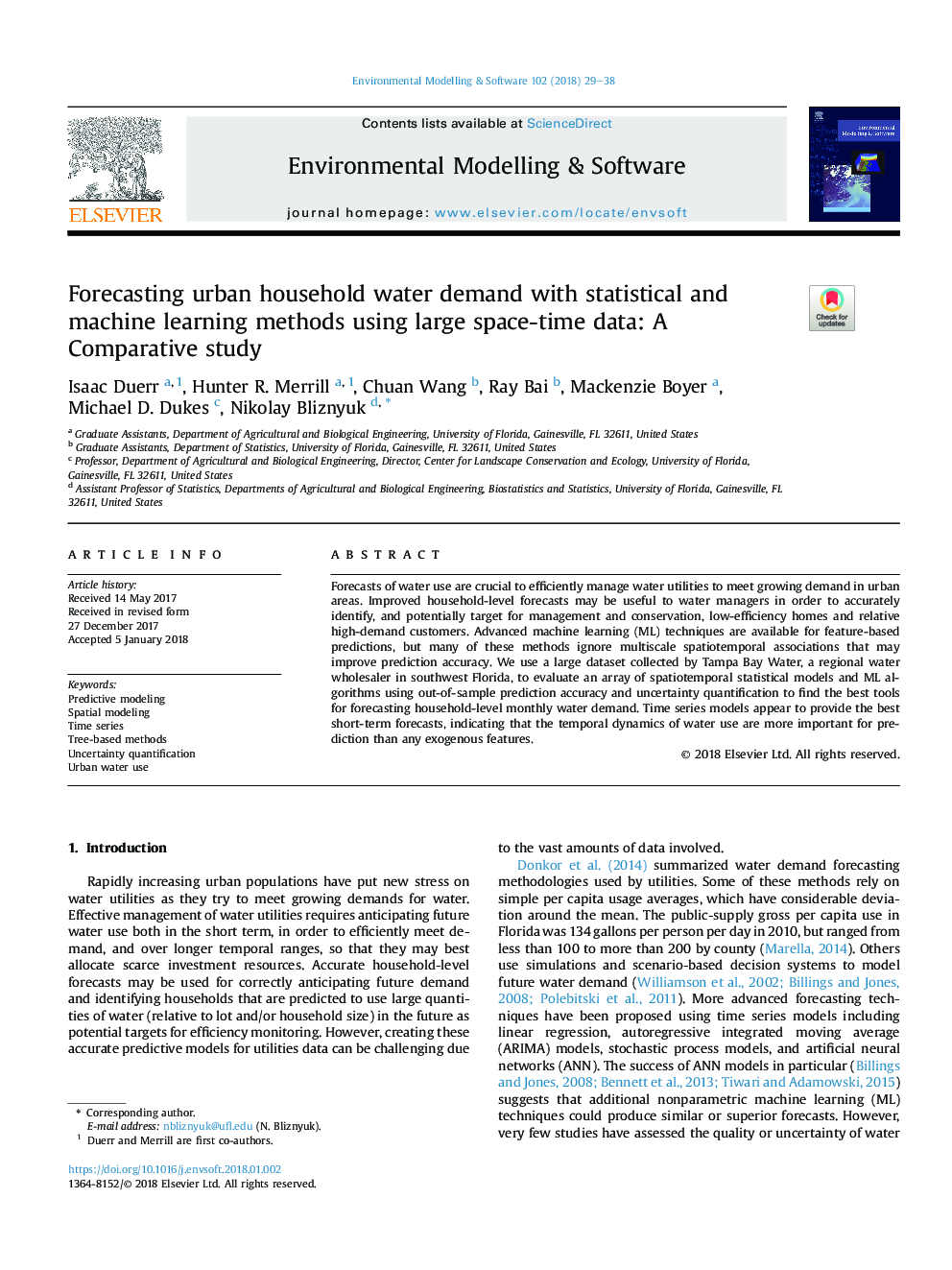| Article ID | Journal | Published Year | Pages | File Type |
|---|---|---|---|---|
| 6962098 | Environmental Modelling & Software | 2018 | 10 Pages |
Abstract
Forecasts of water use are crucial to efficiently manage water utilities to meet growing demand in urban areas. Improved household-level forecasts may be useful to water managers in order to accurately identify, and potentially target for management and conservation, low-efficiency homes and relative high-demand customers. Advanced machine learning (ML) techniques are available for feature-based predictions, but many of these methods ignore multiscale spatiotemporal associations that may improve prediction accuracy. We use a large dataset collected by Tampa Bay Water, a regional water wholesaler in southwest Florida, to evaluate an array of spatiotemporal statistical models and ML algorithms using out-of-sample prediction accuracy and uncertainty quantification to find the best tools for forecasting household-level monthly water demand. Time series models appear to provide the best short-term forecasts, indicating that the temporal dynamics of water use are more important for prediction than any exogenous features.
Related Topics
Physical Sciences and Engineering
Computer Science
Software
Authors
Isaac Duerr, Hunter R. Merrill, Chuan Wang, Ray Bai, Mackenzie Boyer, Michael D. Dukes, Nikolay Bliznyuk,
